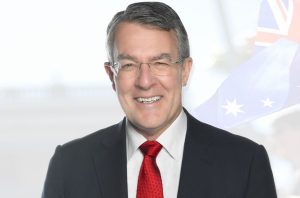AG promises reform on asylum arrangements
Australia’s Attorney General Mark Dreyfus has foreshadowed sweeping reforms to Australia’s asylum laws and arrangements in coming months.
In an interview with The Saturday Paper, Mr Dreyfus said that it was “unthinkable” that Australia should continue the decade-long regime that has seen “tens of thousands of people who live in Australia in a state of limbo”.
 He said the reforms to be announce by Home Affairs Minister Clare O’Neil and Immigration Minister Andrew Giles would put an end to revolving and uncertain temporary visas.
He said the reforms to be announce by Home Affairs Minister Clare O’Neil and Immigration Minister Andrew Giles would put an end to revolving and uncertain temporary visas.
“For many years, when you arrived you were on a path to permanent residency. And because people have already uprooted themselves and changed their lives beyond recognition, you want them to settle,” Mr Dreyfus said.
“Settlement use to be a word that you found in the immigration context.
“We’ve got to do better than the inhumanity that has been shown to the tens of thousands of people whose lives are in limbo.
“It’s not necessary to engage in deliberate cruelty, which is what we saw from time to time from the former government.
“And I’m expecting some decisions to be announced to be announce d by Clear O’Neil and Andrew Giles in the coming months about enabling those people to rebuild their lives,” Mr Dreyfus told The Saturday Paper.
This issue is close to Mr Dreyfus, whose German Jewish family came to Australia as refugees fleeing the Nazis.
His grandparents were among a group of families who sent their children to ahead of the parents.
The children arrived as unaccompanied children in 1939 and were housed in an orphanage. Mr Dreyfus’ father was just 11.
“They went to live at an orphanage in Melbourne, along with 17 other Jewish children who arrived on the same boat. They didn’t know whether they were going to see their parents again.
“The only parents among the group who arrived were my grandparents,” he said.
Mr Dreyfus’ parents arrived in December 1939, after the war had begun. They delayed their departure to try to convince their own parents to come too. They failed and Mr Dreyfus’ great-grandparents became victims of the holocaust.
His parents arrived as stateless persons.
“I’ve got a copy of my grandfather’s passport which has a ‘J’ stamped on every page – so, effectively a cancelled German passport. On his immigration arrival papers, he wrote ‘stateless’. He became an Australian citizen after the war.
“So, yes, I’m grateful. I wouldn’t exist if it wasn’t for the Australian state,” he said.
Mr Dreyfus, a former barrister, was first elected to the House of Representatives in November 2007.
He is the member of Isaacs, in Melbourne’s south east, which takes in part of Dandenong, Keys borough and Moorabbin.
He says he has always been passionate about social justice and his first job out of university was as a field officer for the then fledgling Northern Land Council in the Northern Territory.












